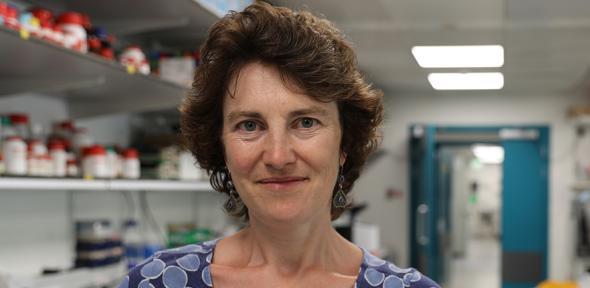“Traditionally, early cancer has been neglected,” says Professor Rebecca Fitzgerald. “People have been much more focused on late cancer, advanced therapies, precision therapy, for example.”
Part of the problem is the hugely expensive and long road to get a new test or preventative treatment to market. Testing a relatively small number of patients with very advanced disease in fairly small trials is a more cost-effective way of seeing if a drug works; targeting early cancer, on the other hand, would involve large population studies over several years before you know if it has worked.
“People have tended to shy away from this kind of research, but I think everyone's waking up now to the fact that unless we do this, we're not going to really improve the survival for the majority of our patients, because most patients are still diagnosed late.
Professor Rebecca Fitzgerald goes on to say "Outcomes can be completely transformed – better survival and less invasive treatments – if the cancer is diagnosed early enough, but we're just hopeless at doing that. We need to find a way to do it better.”
Researchers at the Institute will be focusing in particular on cancers that are hard to treat and as such have very poor outcomes, including lung, pancreas, oesophagus and liver cancers, and acute myeloid leukaemia. Outcomes for these cancers have changed little over the past few years.
Cambridge has a history of making huge strides in cancer research, from pioneering work that led to our ability to rapidly sequence the DNA of tumours to the manufacture and use of monoclonal antibodies, a technology that now underpins routine cancer therapy globally, and the development of a new generation of cancer drugs known as PARP inhibitors.
Fitzgerald’s own area of expertise is oesophageal cancer, where she pioneered the Cytosponge – a ‘pill on a string’ coupled with a lab test that is a remarkably straightforward but effective way of helping determine whether heartburn patients have Barret’s oesophagus, a pre-cursor to cancer, or are developing malignancies.
Now, she wants to build on Cambridge’s history of discovery and innovation and apply it to early cancer.
The Institute will see as many as 120 scientists from a broad spectrum of disciplines across the University – from biologists and clinicians to engineers, physicists and social sciences – working together under one roof to understand the fundamental biology of how cancer develops and how it evolves, and applying that knowledge to pioneer new methods for detecting, treating – even preventing – cancer early.
The Institute is located on the Cambridge Biomedical Campus, where its close proximity to a number of world-leading academic, NHS and industrial partners will prove essential to its success. These include the Cancer Research UK Cambridge Institute, Wellcome-MRC Stem Cell Institute and newly-opened Heart and Lung Research Institute, three hospitals, and major pharmaceutical companies AstraZeneca and GSK. At nearby West Cambridge, physicists, engineers and mathematicians will also collaborate with the Institute’s teams, and a short drive away is the Wellcome Sanger Institute.
Also on the horizon is a major new hospital on the Campus – the Cambridge Cancer Research Hospital, which could begin construction work late next year. Discoveries and innovations emerging from the Early Cancer Institute will underpin much of the research and treatment that takes place there and beyond, and will be complemented by a dedicated space in the hospital.
This is, says Fitzgerald, one of only four life sciences ecosystems in the world – and the largest in Europe – that provide the capability, critical mass, and integration of science and medicine to transform patient care.
Fitzgerald is currently fundraising to help upgrade the facilities in the Hutchison Building, where the Institute is based, and to enable her team to attract more early career researchers. Their fundraising target of £20 million may sound ambitious, but then so is the goal of the Institute.
“We’re working to move the world beyond the fear of cancer.” Professor Rebecca Fitzgerald
Read full story by Craig Brierley
Image: Professor Rebecca Fitzgerald
Reproduced courtesy of the University of Cambridge



